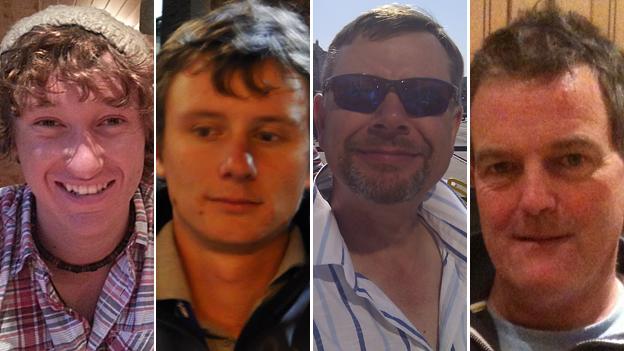Cheeki Rafiki yacht director cleared over sailor deaths
- Published
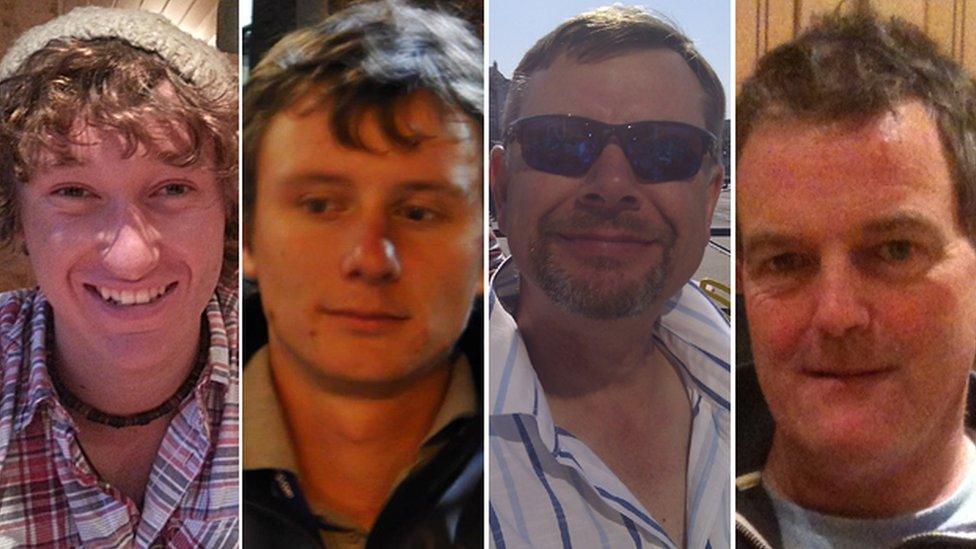
(L-R) Crew members James Male, Andrew Bridge, Steve Warren and Paul Goslin all died
The director of a yacht management company has been cleared of the manslaughter of four men who died when their vessel capsized in the Atlantic.
The crew of the Cheeki Rafiki died after the 40ft vessel lost its keel and capsized more than 700 miles off the coast of Nova Scotia in May 2014.
Douglas Innes, 43, was cleared of four counts of manslaughter by gross negligence following a retrial at Winchester Crown Court.
The crew's bodies were never found.
The four men on board - skipper Andrew Bridge, 22, from Farnham in Surrey, James Male, 22, from Romsey in Hampshire, Steve Warren, 52, from Bridgwater in Somerset and Paul Goslin, 56, from West Camel in Somerset - were travelling back to the UK when the vessel lost its keel.
Mr Innes shut his eyes and silently mouthed the words "thank you" to the jury when the first not guilty verdict was read out.
The director and his company Stormforce Coaching Limited will be sentenced on 11 May after being convicted at the first trial of failing to operate the yacht in a safe manner contrary to the Merchant Shipping Act.
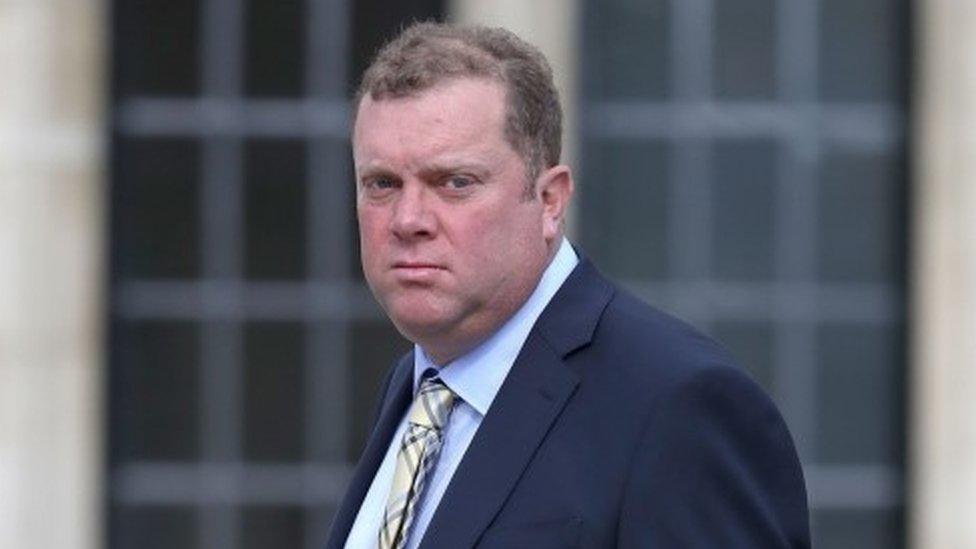
Douglas Innes, who ran Stormforce Coaching, was cleared of four counts of manslaughter
The court had been told an "urgent email" had been sent by the crew warning Mr Innes their yacht on the boat - named after a character in the Lion King - was taking on water in bad weather.
He replied advising the sailors to make sure the life raft was ready and later phoned the UK Coastguard, but the prosecution had argued he had not shown any urgency.
The yacht was found overturned and empty on 17 May, two days after the email was sent, with its life raft still on board.
But Mr Innes told the court there had been regular inspections and no evidence of keel damage.
He said the yacht was taken out of the water for nearly five months in 2013 for the hull to be repainted.
"If the boat is out of the water for that period of time, I would have inspected it myself as well," he told the jury.
Mr Innes also said he only became aware of the extent of damage caused by two previous groundings after the prosecution was launched.
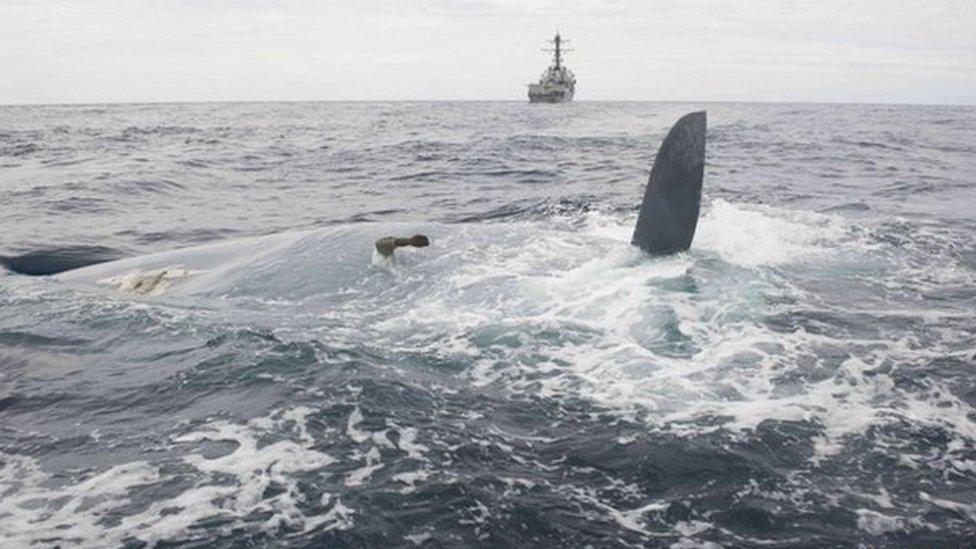
The overturned hull of the Cheeki Rafiki after it was discovered by a US Navy warship
The Marine Accident Investigation Branch concluded that previous groundings and repairs might have caused weakening at the point where the keel was attached to the hull, causing it to fall off.
It said the Maritime and Coastguard Agency had undertaken to work with the Royal Yachting Association and the marine industry to clarify safety and maintenance requirements.
A note from the jury read out in court said it was "deeply concerned" about a maritime regulation guidance note and hoped it would be reviewed and tightened to help improve safety.
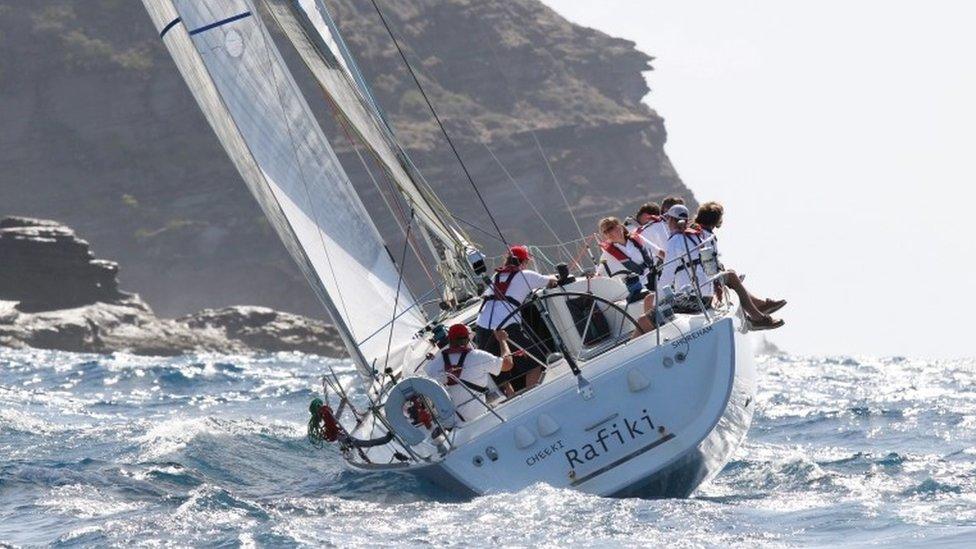
The Cheeki Rafiki had been on its way to Southampton from Antigua Sailing Week
The US Coastguard's decision to ends its search and rescue operation after two days resulted in criticism from the sailors' families.
It resumed after an intervention by the British government, and the upturned yacht was discovered in the Atlantic Ocean about 1,000 miles (1,609km) east of Cape Cod in Massachusetts with its cabin completely flooded and its windows shattered.
The boat was found without any sign of the missing men, and underwater photographs showed the life raft stowed in place.
- Published10 April 2018

- Published27 February 2018

- Published14 July 2017

- Published30 May 2014
